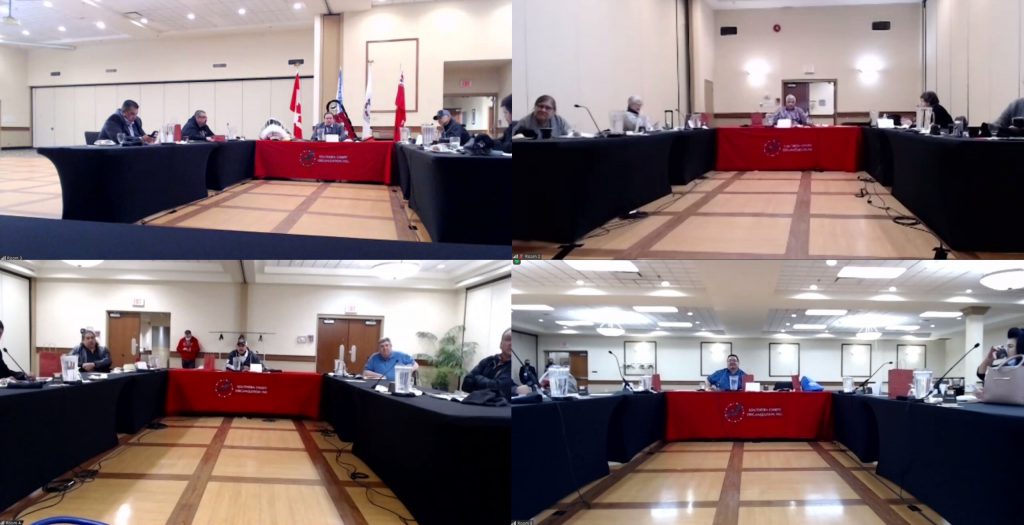Despite the global pandemic, southern First Nation Chiefs were able to gather virtually and safely in-person for SCO’s latest Chiefs’ Summit where an ambitious agenda was set for the coming year with a focus on health care and justice.
Grand Chief Jerry Daniels expressed pride and gratitude to his fellow Chiefs for making it possible to gather at this trying time. We are all aware of how much we miss gathering, and we keep finding innovative ways to meet and work while keeping our safety paramount during the pandemic.
The Summit
The Chiefs considered a number of resolutions at the summit, including passing an important Health Transformation resolution. The resolution calls for the formation of a Southern First Nation Health Authority Action Plan. That Authority will include adding a representative from each SCO community to assist with transferring services and programs from Canada to an SCO First Nation Self-Governing Authority.
“I look forward to working alongside the Chiefs of SCO to advance this very important initiative,” stated Pine Creek First Nation Chief and Chiefs’ Health Action Table Chair, Karen Batson. “Health care for First Nations in southern Manitoba has to be our priority, including equitable access and culturally-appropriate health care for Elders, youth, families, and communities. This work is central to wellness and the success of Anishinaabeg and Dakota peoples.”

This resolution also comes after SCO recently made public the results of a survey on racism in health care, which show that almost 72 per cent of respondents reported they have experienced racism when accessing services and programs in the Manitoba health care system, nearly 80 per cent report witnessing a family member or loved one being discriminated against or treated badly because of their race, and the vast majority of participants, at 92 per cent, either strongly agreed or agreed with the statement that “racism is a problem in Manitoba’s health care system.”
“That report is one more reason we need to dramatically change the manner in which health care is delivered to our people,” added Sagkeeng First Nation Chief Derrick Henderson. “In order to improve health outcomes for our Nations, we must build a high quality, culturally-safe health system that is designed by and under the leadership of our people.”
Providing equitable access to health care and culturally-appropriate services for Elders, youth, families, and communities is central to wellness and the success of Anishinaabeg and Dakota peoples!
Resolutions were also passed in the areas of justice and Non-Insured Health Benefits (NIHB), which will lead to southern First Nations having more control and authority over these critical program areas.
Check out our Chiefs’ Summit media release for more details!
For more information on SCO’s Health Transformation and Justice programs:

